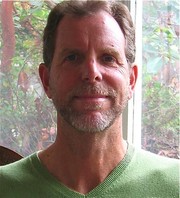Degrees of disaster
Status
Rate
Check Later
First publish year 1994
Subjects
Using the twice-damaged Prince William Sound in Alaska as his stage, nature and science writer Jeff Wheelwright describes what happens to the environment after a catastrophic assaulthow scientists try to measure the changes and how it is that nature reels and adapts.
What happens to wilderness ecosystems when they are struck by environmental disaster? Prince William Sound has experienced two events in the past quarter-century, the 9.2 earthquake of 1964 and the Exxon Valdez oil spill of 1989. Both the natural and manmade disaster are extreme examples of disturbances, and Wheelwright, in this rich ecological history of the Sound, provides many lesser examples. He shows that a healthy natural system is constantly in flux.
Animal populations rise and fall; variability and patchiness are the rule. The factors that cause biological change are numerous and overlapping and often can't be sorted out in spite of the best efforts of scientists. But an ecosystem such as Prince William Sound readily recovers from disturbances in part because the disturbances are so routine.
.
In the case of the oil spill, Wheelwright starts with the physical fate of hydrocarbons when they are released in the sea. He explains how scientists tracked the oil through its various marine transformations. He analyzes the shoreline cleanup program, showing how the cleanup was itself a disturbance and yet inferior to the natural cleansing by waves and weather.
He appraises the biological effects of hydrocarbons on a range of organisms: from human exposure to oil, through that of seabirds, mammals, fish and invertebrates in the Sound, and lastly to the bacteria stimulated at the base of the food chain. Throughout Wheelwright illuminates the gap between the scientists' measurements of change and the public's understanding of disaster.
Wheelwright gives special attention to the sea otter, the most appealing creature of the Sound. He recounts the otter's history, its shocking losses from the oil spill, the rescue efforts on its behalf, and the animal's innate resilience. In an imaginative counterpoint, he compares the sea otter's response to disaster to that of the Native people of the area.
Degrees of Disaster is a brilliant and moving account of a natural world, of the humans and animals inhabiting it, and of the struggle to fathom its complexities.
Seems like you haven't provided a review
Don't miss the opportunity to share your thoughts!


